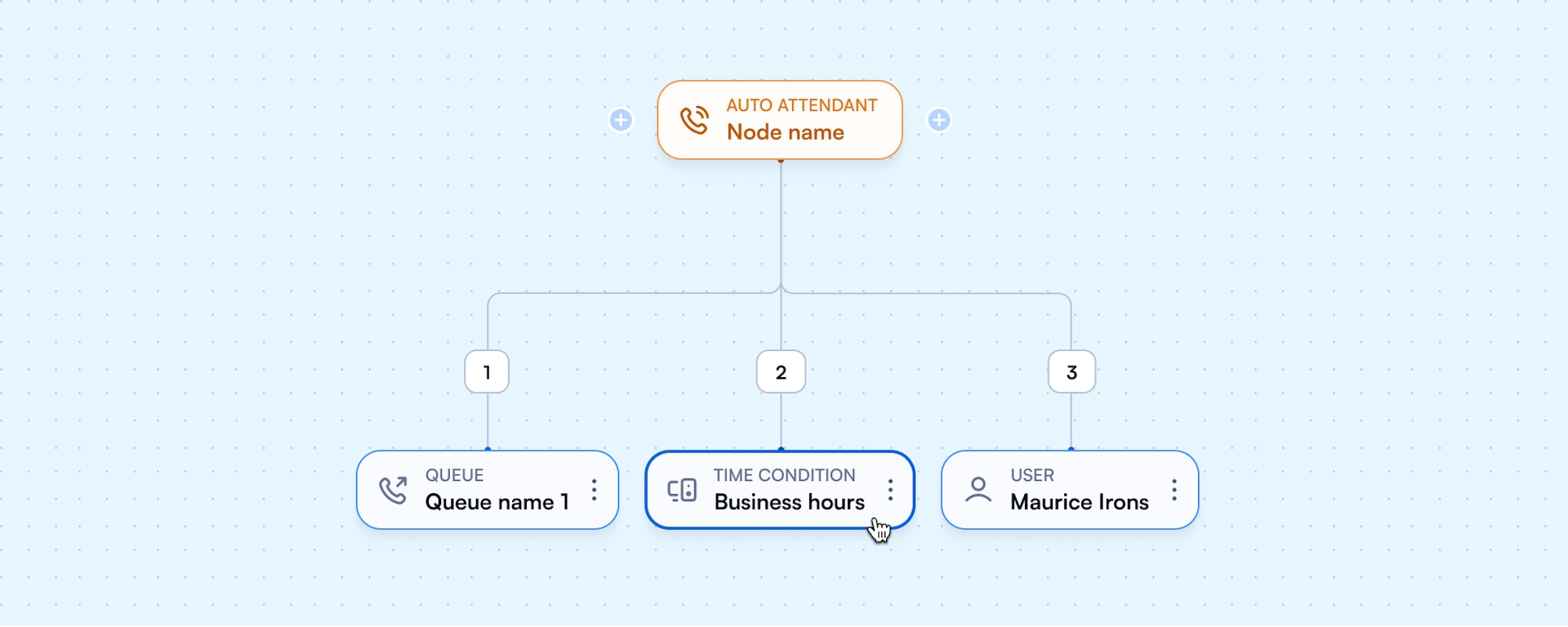How can Interactive Voice Response (IVR) boost customer service?

Imagine entering a business at a time of need and being met with a maze of hallways and closed doors: That's exactly how customers can feel navigating traditional phone menus with endless "press 1 for sales, 2 for support..." prompts.
Thankfully, there is a better way to handle calling customers: Interactive Voice Response (IVR). IVR works as a virtual receptionist, guiding callers efficiently and effortlessly to the appropriate representative or information. But this system is much more than just a fancy, automated response menu: It is a powerful tool that can bring value to customer interactions and keep clients engaged and satisfied. IVR can boost customer satisfaction, improve operational efficiency, rapidly adapt to changing business needs, and reap the rewards of future technologies, pushing businesses forward toward success.
1. IVR Can Enhance Customer Engagements
Integrating IVR into a company’s client call management processes can significantly boost customer experience by streamlining call navigation, which provides near-instant access to information and directly minimizes wait times. Phone prompts can guide callers through a series of automated menus, allowing them to resolve common inquiries or reach the appropriate department efficiently. This self-service capability ensures customers receive fast, personalized service without the frustration of long hold times or unnecessary transfers, enhancing satisfaction and reinforcing the company’s commitment to customer service excellence.
Also, if a business runs in a multinational environment, multi-language support can cater to diverse ethnic backgrounds by offering multilingual IVR menus, breaking down language barriers, and improving accessibility.
2. IVR Can Improve Operational Efficiency
IVR systems can improve operational efficiency and reduce Average Handle Time by automatically addressing basic, routine calls, such as checking account balances, tracking orders, or resetting passwords. Automatic call handling frees agents for more complex calls, increasing customer satisfaction and bringing operational costs down. Additionally, IVR systems can gather relevant information (such as account details or nature of inquiry) from callers before connecting them to live operators, enabling agents to personalize their approach and improve first-call resolution rates. Also, shorter wait times reduce the likelihood of call abandonment, thereby maximizing the efficiency of interactions.
3. IVR Has 24/7 Availability
IVR systems provide round-the-clock availability, allowing callers to access information and services outside of regular business hours (weekends, nights, bank holidays). Callers can be directed to a menu of options tailored to their inquiries and navigate through pre-recorded prompts to obtain information or perform transactions. No more need for live agent intervention, only improved accessibility and higher customer satisfaction while maintaining operational efficiency round the clock.
4. IVR Easily Adapts to Your Business Needs
Implementing IVR is not just about replacing human interaction: It's about creating a collaborative ecosystem where technology empowers both customers and agents. Such a system is as adaptable to business needs as you want it to be. You can choose whichever approach style matches your brand and you can make it either simple and efficient, or more sophisticated - with speech recognition and dynamic routing options (see 6. Future Trends and Innovations). Automatic responses can be human-friendly, providing the option to connect with a live agent at any time and avoid frustrating customers who prefer human interaction. Moreover, businesses can constantly test-refine-improve their IVR systems by regularly gathering feedback and analyzing data, thus ensuring optimal performance.
5. IVR Is Easily Scalable and Flexible
Whether you're a small startup or a large enterprise, IVR systems can scale to accommodate growing call volumes and evolving business needs. With Cloud-based VoIP solutions, businesses can easily add or modify IVR features and adjust call flows. Businesses can even integrate with other communication channels and become available via email, chat, or Social Media. This provides a seamless omnichannel experience for customers and proves the power of adapting to customers’ preferences.
6. IVR Can Benefit from Future Trends and Innovations
As technology continues to advance, the future of IVR in VoIP solutions holds even more promise for businesses seeking to elevate their customer service capabilities. Advancements in artificial intelligence (AI) and natural language processing (NLP) enable IVR systems to interpret and respond to caller inquiries more intelligently and contextually. Additionally, integration with emerging technologies like chatbots, virtual assistants, and speech analytics will continue to drive innovation in IVR solutions, paving the way for more intuitive and interactive customer interactions.
Conclusion: Use IVR to Become “the Business Where They’re Always Answering”
In today's competitive business environment, the adoption of a robust IVR solution represents an investment in customers, agents, and ultimately in business success. By giving callers self-service options, streamlining call routing, and increasing efficiency, IVR can turn organizations into client-centered, cost-effective, and productive hubs. IVR systems not only reduce call center workload but also improve the overall customer experience by providing quick and convenient access to information and services.
